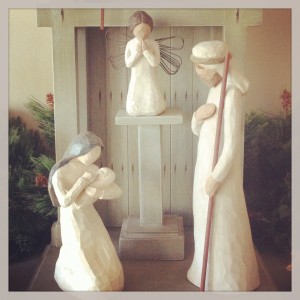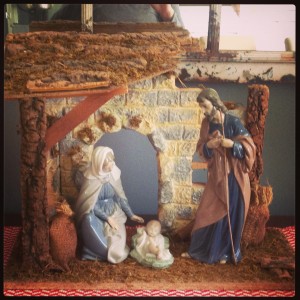This last week has been a little rough in our house. With 3 kids, 3 different schools, sports practices, orientations, meetings, PTA responsibilities and an endless pile of papers to sign, I’m having a hard time staying grounded and calm. I have always been a high-capacity person, but this week is throwing me for a loop. I simply can’t keep up. I am stretched as thin as I can possibly be and the stress fractures are becoming painful.
In addition to the logistical challenges I’m contending with, there are two major changes in our house that are further compromising my ability to cope. First of all, my oldest son began high school this week and the transition is exponentially harder than I anticipated. Of course I knew it was coming and he has been ready for months. Still, my heart is wrenching as I watch him walk out the door each morning and realize that this is the final chapter of his childhood. It’s as if the door has been slowly opening over the last 14 years and he is finally crossing the threshold. And I want to go with him. The reality that I have to stay behind as he makes his own way seems so counter intuitive. In what other job, do you give every bit of your blood, sweat and tears only to relinquish everything you’ve worked for? Mothering is such bitter irony sometimes and in these last few days, that truth has stung and festered in my fragile heart.
Secondly, my 7th grade son is beginning a new school this year. He will attend a small hybrid school two days a week and work from home the other three. The anxiety I have over this new course is living right under my skin. There are so many unknowns and my controlling nature is reeling from the uncertainty. I am afraid that it will be more than I can handle. I am afraid that it will be more than he can handle. I am terrified that he won’t connect with the other students and will, again, be marginalized and left feeling alone and unimportant. I am fighting to stay positive and keep resentment at bay over the time I will inevitably have to surrender to his instruction.
Truthfully, I am not handling all this change with nearly as much grace as I’d like. All of the emotion, the apprehension, and the anxiety are so close to the surface that almost everything seems to set off a disproportionate reaction. I am fighting tears more hours of the day than not. I can’t find peace no matter how hard I try and joy has been elusive and unattainable. I’m simply finding it impossible to rest with all the chaos and adjustment around me.
In response to all this turmoil, God quietly gave me Romans 4:17.
“…in the presence of the God in whom he believed, who gives life to the dead and calls into existence the things that do not exist.”
Can I just tell you how much I am in love with my God? I have in my corner a power that is able to “call into existence the things that do not exist”. Just as God called forth the sun and the moon, the sea and the land, he can bid far more personal things to come rushing into my life. Things I am desperate for and things that are definitely nonexistent in my current condition. Where there is only fear, he can bid peace like rivers and it will flood into my anxious heart. Where there is only unrest, he can name rest and it will come forth and offer refuge. In the presence of great anxiety, he can simply call joy to come land and live in my parched spirit.
The Greek word for call is kaleo and it means to bid or call, properly aloud. This is exactly what I need. Isn’t this what we all need? We need Jesus to stand in the middle of our chaos, in the middle of our pain, in the middle of our burden and call aloud the things only he can produce. And it is high time that we claim this promise. It is time for all of us to petition our God to call into existence what we simply cannot create on our own.
In Matthew 7, verses 7-11, Christ encourages us to pray and ask for what we need. He challenges us to ask, seek and knock with the promise that what we ask for we will receive, what we seek we will find and what we knock on will be opened. Furthermore, he challenges his audience with this statement: “If you then, who are evil, know how to give good gifts to your children, how much more will your Father who is in heaven give good things to those who ask him!”
God wants to give us good things. And what could be better than peace? What’s more desirable than joy and rest?
Far too often, this world robs us of our peace. It steals our joy and leaves us flat-out exhausted from spinning in needless circles. Too many evenings find us emotionally spent and void of rest. Thankfully, there is one who can change that. There is one who can stand when we can’t, who can see when we are blind, who can speak when we have no words. This God of ours, with great love and compassion, can call into being all the things we are desperate for. What is nonexistent, but absolutely essential, he can bid forth with a simple whisper and meet us in our greatest need. All we need to do is ask. He is ready and waiting. He is eager to shower grace and call into existence the things that do not exist.



